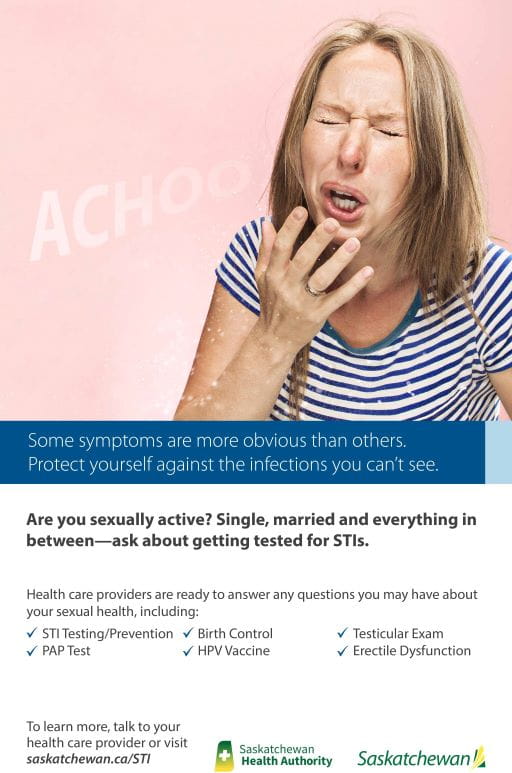Released on February 11, 2019
Sexual and Reproductive Health Week runs from February 11-15, 2019 and the Government of Saskatchewan is encouraging people to discuss sexual health as part of routine visits to their health care provider and get tested regularly for sexually transmitted infections (STIs).
An awareness campaign aims to normalize assessment of sexual health and screening for STIs among sexually active individuals and reduce the stigma associated with discussing sexual health. Deputy Chief Medical Health Officer for Saskatchewan Dr. Denise Werker is reminding people that sexual health at all ages is important.
“We are concerned about the high rates of STIs in our province,” Werker said. “We want to make sure that if people are sexually active, they know they may be at risk of contracting a STI, and that getting tested and conversations about your overall sexual health should be expected as part of your regular checkup.”
Many individuals who are infected with STIs (chlamydia, gonorrhea, early stages of herpes) do not know it because they don't have symptoms or symptoms are mild. The consequences of not getting tested or treated vary depending on the infection but can be significant. Patients should feel comfortable asking their health care provider any questions they need to make safe and informed choices about their sexual health. This can include information about STI testing, birth control, PAP tests, testicular exams, the HPV vaccination, or if they are experiencing issues with erectile dysfunction.
Saskatchewan provides medications to treat sexually transmitted infections to physicians and sexual health clinics to offer free of charge to patients at the time of their appointment.
For more information about STI symptoms, testing, and treatment, visit www.saskatchewan.ca/STI.
-30-
For more information, contact:
Shelley Svedahl
Health
Regina
Phone: (306) 787-4083
Email: shelley.svedahl@health.gov.sk.ca

